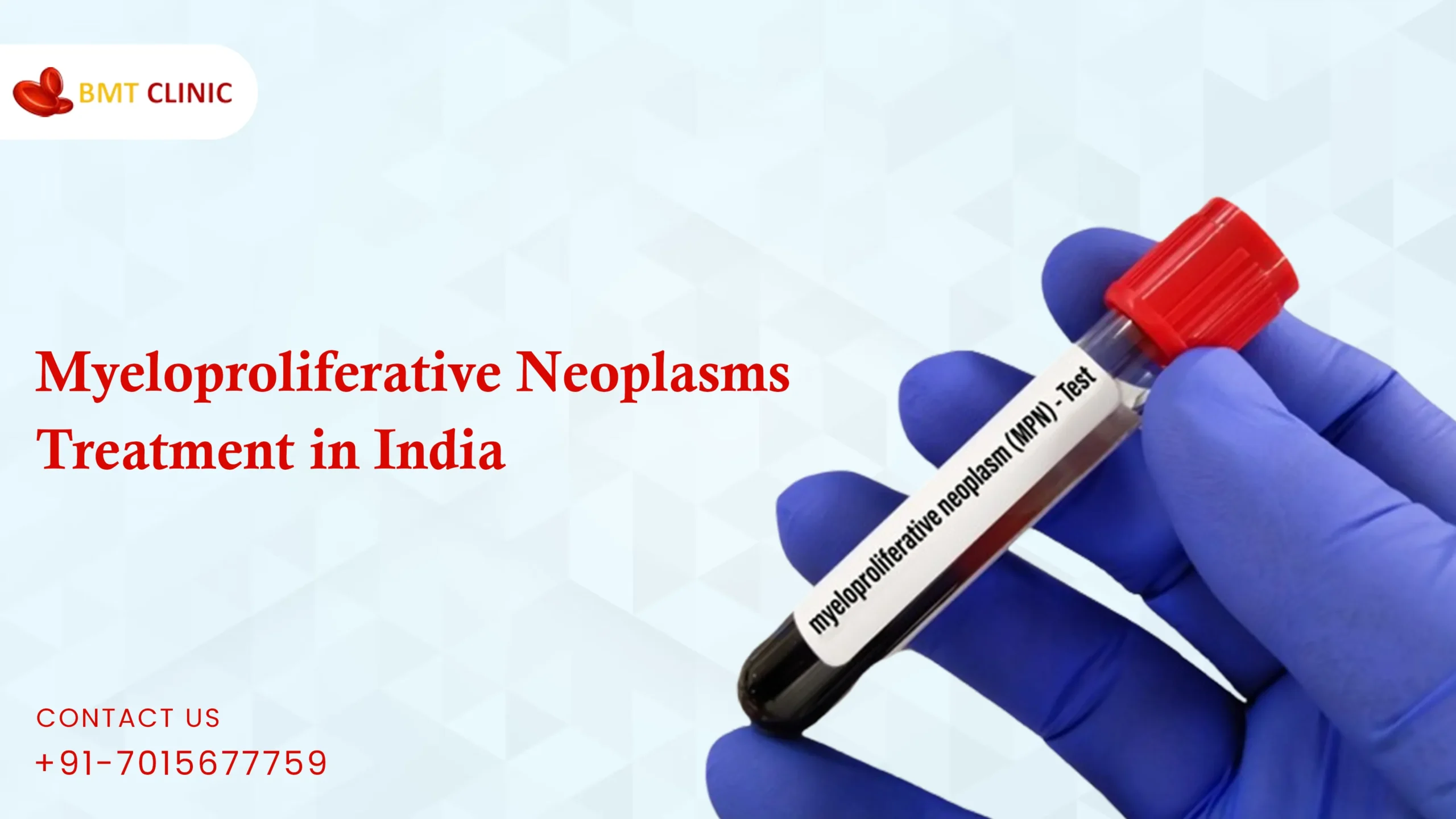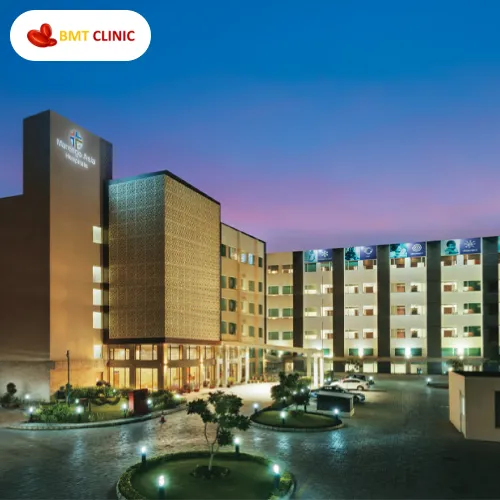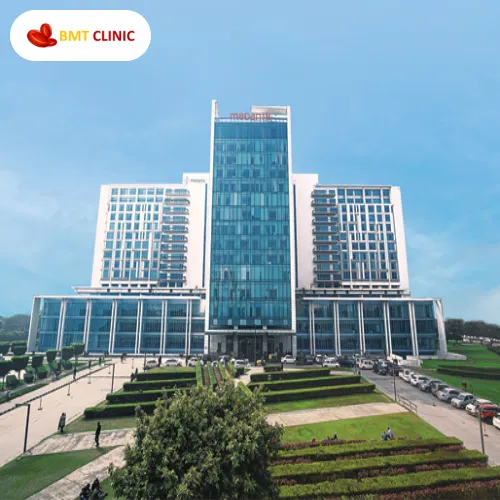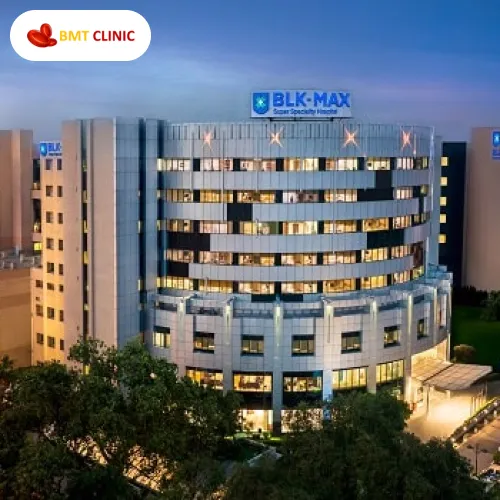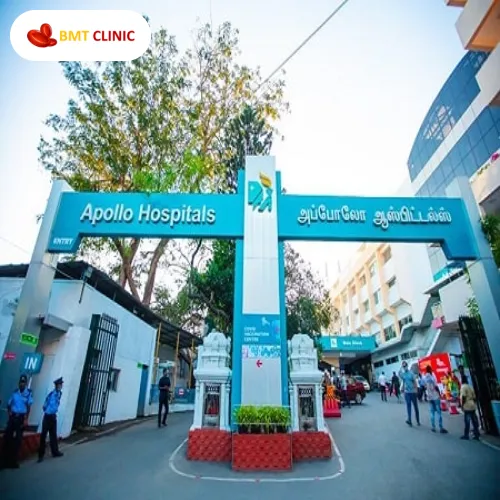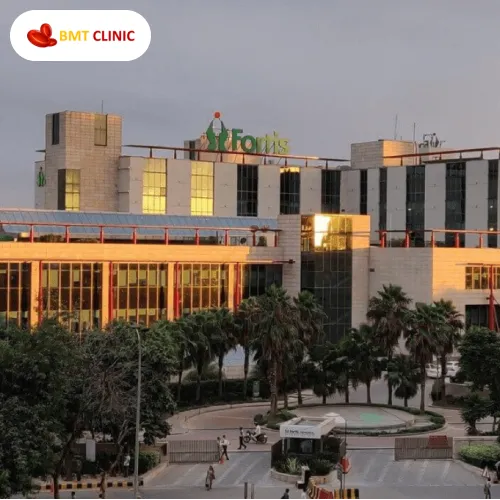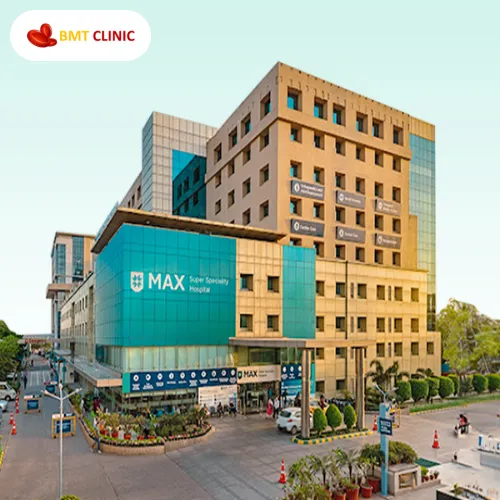Myelodysplastic syndrome (MDS) is a blood cancer that affects bone marrow cells and causes overproduction of blood cells, such as red blood cells, white blood cells, and platelets. The myeloproliferative neoplasms treatment is crucial as it may impact the quality of your life. The myeloproliferative neoplasms treatment cost in India is affordable and provides the best medical facilities as compared to western countries.
Now, let’s get an insight into myeloproliferative neoplasms, factors affecting their cost, types of treatment, financial assistance options, and top hospitals in India to treat myeloproliferative neoplasms.
Myeloproliferative Neoplasms Treatment Cost in India
Myeloproliferative Neoplasms Treatment Cost in India ranges from 12000 USD to 38000 USD. It can also vary widely depending on the type of procedure or location of the hospital, but the cost of myelodysplastic neoplasms treatment in India is generally much more affordable than in Western countries.
Note: Keep in mind that the costs given here are only for the treatment.
Factors That Can Affect Myeloproliferative Neoplasms Treatment Cost in India
While considering treatment for myeloproliferative neoplasms in India, various factors can influence the overall cost. The following are the key factors that can affect the treatment costs.
- Type of MPN: Myeloproliferative neoplasms treatment cost in India also depends upon the type of treatment, like bone marrow transplant, which is more costly than other treatments due to its complex process.
- Type of Treatment: Hospitals in big cities might be costlier than those in the smaller cities.
- Duration of treatment: The duration of the treatment will also affect the cost of the treatment.
- Diagnostic Tests: Diagnostic cost depends on the initial assessments, regular monitoring, and follow-up tests. Advanced imaging and laboratory tests may also be required, influencing the overall budget.
- Medications: The price of the medication varies depending on the type, brand, and dosage. Some newer therapies may be more expensive.
- Additional costs: When planning for treatment, it’s important to account for additional expenses that may arise, such as:
- Travel and accommodation for international patients.
- Post-treatment follow-ups and medication.
- Potential complications may extend hospital stays.
- Caregiver expenses.
Understanding the Myeloproliferative Neoplasms
Myeloproliferative Neoplasms (MPNs) is a rare blood cancer that affects blood cells like red blood cells, white blood cells, and platelets in the bone marrow. These disorders can lead to various health complications, including blood clots, anemia, and an increased risk of transformation to acute leukemia. Understanding MPNs is essential for effective management and treatment.
Types of Myeloproliferative Neoplasms:
-
Polycythemia Vera (PV):
-
- Most common of myeloproliferative neoplasms
- Over-production of red blood cells in the bone marrow
- Due to excess RBCs, blood becomes thick and thus can develop heart attack and stroke.
-
Essential Thrombocythemia (ET):
- Over-production of platelets in the bone marrow
- Increase the chances of blood clotting
-
Myelofibrosis:
- Most aggressive myeloproliferative neoplasms
- Abnormal stem cell production that is inflamed and makes scar tissue
- Causes to develop anemia
What Are the Diagnostic Tests for Myeloproliferative Neoplasms?
Myeloproliferative neoplasm (MPNs) diagnosis involves a combination of laboratory tests and sometimes genetic analysis. Here is the list of diagnostic tests for myelodysplastic syndrome.
-
Blood Tests
- Complete Blood Count (CBC)
- Peripheral Blood Smear (PBS)
-
Bone Marrow Aspiration and Biopsy
- Bone Marrow Aspiration
- Bone Marrow Biopsy
-
Cytogenetic Analysis
- Chromosome Analysis
-
Molecular Genetic Testing
- Next-Generation Sequencing (NGS)
-
Other Tests
- Flow Cytometry
- Iron Studies
Myeloproliferative Neoplasms Treatment Types
The myeloproliferative neoplasms treatment type is based on several factors, such as type of MPNs, MPNs conditions, age, and overall health.
Here are the types of treatment for MDS.
1. Stem Cell Transplant/Bone Marrow Transplant:
It is a procedure to replace damaged bone marrow with healthy stem cells. It can be an allogenic (uses donor stem cells) or autologous (uses the patient’s stem cells) type of treatment. It is only performed when the condition is severe.
2. Chemotherapy:
Chemotherapy employs powerful drugs to target and destroy abnormal blood cells in the bone marrow. Low-dose chemotherapy, such as hydroxyurea, to reduce blood cell production
Targeted Therapy: Targeted therapy uses drugs that specifically attack cancer cells by blocking certain pathways essential for their growth and survival. Drugs, such as ruxolitinib, target the JAK2 gene, which is often mutated in MPNs patients.
3. Radiation Therapy:
Radiation therapy uses high-energy rays to target and kill cancerous cells. It may be used to reduce the size of the spleen or to treat other complications related to MPNs.
4. Phlebotomy:
Removal of blood from the body, primarily used for patients with polycythemia vera to decrease red blood cell mass and improve blood viscosity.
5. Surgery:
This is not a very common type of treatment but it may be necessary in certain situations, such as splenectomy (removal of the spleen) in cases of severe splenomegaly or other complications that are not manageable.
Supportive care and Treatments
The myeloproliferative neoplasms may include supportive care and treatment to get rid of unhealthy blood cells. Supportive care includes,
- Blood transfusion
- Erythropoiesis-stimulating agents (ESA)
- Antibiotics
Why Is Myeloproliferative Neoplasms Treatment Required For Patients Suffering From Blood Disorders?
Treatment is essential for patients with MPN for the following key reasons:
- Management of symptoms such as fatigue, dizziness, headache, and splenomegaly
- Prevention of complications, like bleeding, thrombosis, and AML
- Improvement in blood cell counts
- Enhancing quality of life
Top Hospitals for the Myeloproliferative Neoplasms Treatment in India
Individuals from around the globe seek myeloproliferative neoplasm treatment in India, renowned for its world-class medical facilities and expertise. The country has numerous prestigious hospitals specializing in MPN therapies, offering cutting-edge treatments and compassionate care.
Here is the list of top hospitals that provide treatment for MPNs.
- Fortis Hospital, Gurugram
- Max Hospital, New Delhi
- Fortis Escort Hospital, New Delhi
- Indraprastha Apollo Hospital, New Delhi
- Global Hospital, Chennai
Preparing for Myeloproliferative Neoplasms Treatment in India
If you’re considering myeloproliferative neoplasm treatment in India, here are some things you may need to be aware of:
- Collect all necessary documentation of prior consultations and diagnostic tests.
- Select a good hospital and a good doctor to operate on you. (You can contact us at BMTClinic.com if you’re looking for myeloproliferative neoplasms treatment in India.)
- Verify visa regulations (medical visas for international patients).
- Ensure that you make arrangements for a caregiver to be with you all the time that you are in the hospital.
- It is advisable to plan for an extended trip because the treatment and recovery period may range from weeks to months.
Financial Assistance Options for Myeloproliferative Neoplasms Treatment
Here are some financial assistance options that can affect myeloproliferative neoplasms treatment cost in India.
- Insurance Coverage
- Patient assistance programs
- Non-profit organization (NGO)
- Crowdfunding
- Government Schemes (India) such as Ayushman Bharat
A Note from BMT Clinic
BMT Clinic is dedicated to helping patients find the right doctors and facilities for specialized care. As a leader in medical tourism, we welcome international patients and offer streamlined services to assist with travel, accommodation, and post-treatment follow-up. Our goal is to provide the highest quality care in a supportive environment, helping patients and their families navigate this journey with confidence. Let us guide you on your journey to recovery.

